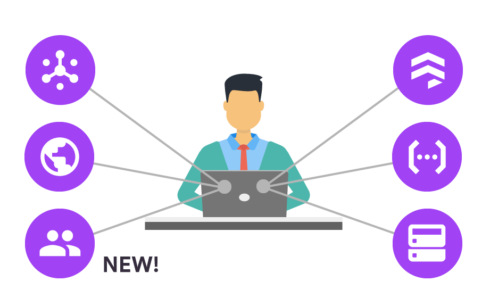
Google is updating its mobile platform Firebase with new building blocks to accelerate app development. The company made a number of announcements at its Firebase Summit 2020 this week.
“Over the past few months, we’ve seen that apps not only improve the way we live, they also enhance our ability to adapt to change. In 2020, more businesses and families have turned to apps to stay connected, productive, and entertained. At the same time, our developer community has stepped up to build and scale the apps people are relying on,” Francis Ma, director of product management for Firebase, wrote in a blog post.
The announcements included:
Authentication emulator for rapid iteration and local development
The Emulator Suite that lets users run emulated versions of Firebase’s backend products for a faster and safer development experience now includes support for authentication, according to Ma.
The new auth emulator also enables developers to run integration tests that rely on authentication.
“The Emulator Suite, now with Firebase Authentication, allows you to shift to a local-first developer workflow so you can experiment and rapidly iterate without touching production data, incurring costs, or worrying that you’ll break something,” Ma.
New hosting preview channels let users see changes before publishing
With Firebase Hosting, companies can deploy secure, fast-loading web apps and landing pages that are backed by a global CDN in less time and less hassle.
Now, users can deploy changes to a preview channel in seconds with a single command and generate an obscured unique URL to share with your team.
“Preview channels not only let you check that your changes look as intended right away, they also make collaboration quicker and easier even if you’re working across a distributed team,” Ma explained.
More extensions for adding features and functionality
The Firebase team announced that it partnered with Stripe to release the Send Invoices using Stripe and the Subscription Payments with Stripe that let users integrate the Stripe payments platform without requiring users to learn Stripe’s API.
Another new feature is the preview of another extension through the company’s Alpha Program, called Detect Online Presence that shows which users or devices are currently online and stores that data in Cloud Firestore.
Redesigned performance monitoring dashboard to help users focus on critical metrics
Firebase Performance Monitoring gathers and presents data about an app’s performance to show exactly what’s happening in an app – and when users are encountering slowness.
“This new dashboard makes it crystal clear if one of your critical metrics needs attention so that you can take action, and it’s customizable, allowing you to bring the metrics you care about most to the forefront,” Ma stated.
New organizational and targeting tools for Remote Config explained
Firebase Remote Config can dynamically alter an app, safely test and release new features, and help developers stay in control of their whole experience.
First, the company added information about experiments into the Remote Config dashboard and launched parameter groups. Then, the company added the feature to sort parameters alphabetically and enhanced the search tool.
The addition of improved vision targeting made the feature available for iOS and added support for semantic versioning so users could utilize numeric operators such as “>=” to target specific app versions without resorting to complicated regular expressions.
The most recent launch of config metrics gives users more visibility into how an app configuration is behaving for users to find and fix incorrect configurations quickly.
Google Analytics APIs for better data management
Firebase’s integration with Google Analytics helps organizations understand what actions users are taking inside of an app so that they can make smarter business value decisions.
Three new APIs announced today include the Google Analytics 4 Measurement protocol for logging events directly in Google Analytics, Data API that offers programmatic access to Google Analytics reporting data, and Admin API that gives users the ability to configure their Analytics account and set user permissions.
The team also introduced the ability to bring custom segments back from BigQuery into Firebase with the launch of imported segments.
“With these improvements to Firebase, we aim to make app development faster and easier so you can stay focused on creating the amazing app experiences that people need to stay productive, connected, and entertained,” Ma
Additional details on all of the product updates are available here.






